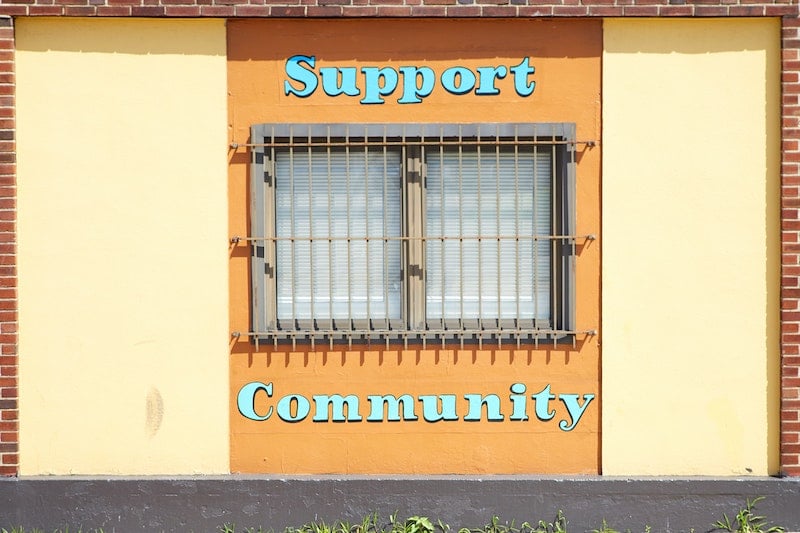High-impact practices are typically adopted to boost student engagement, endurance, and retention regardless of their background. As a high-impact practice, service learning allows students to experience social and environmental issues as part of their learning process. Although quite underestimated in certain fields, the effects of service learning across disciplines cannot be overstated.
Unpacking her over nine years of experience with high-impact practices as director of engaged learning at Salt Lake Community College (SLCC), Lucy Smith gives a first-hand account of the powerful effects of community learning on students, in a chat with Jeff Yan. In this insightful episode of Digication Scholars Conversations, Lucy touches on the versatility of service learning and social accomplishment, as well as community learning as a vehicle for social activism, its effect on student endurance, and more.

Service Learning: What it is and how it Works
Why should we invest in service learning?
Regardless of who is asking, when, or where they are asking from, the answer to this question is simple. As an experience-based learning activity, service learning takes students outside the lecture theatre to communities where they get a hands-on learning experience in civic skills and knowledge. This experience sticks with the student for years, long after the lengthy lectures and theories are forgotten
Having spent her entire adult life in service, Lucy helps the faculty at SLCC generate ideas for service learning across disciplines. Describing her experience with developing community-engaged learning ideas, She explains that she gets questions from many disciplines on campus about incorporating service into their curriculum. “They're like “how would you incorporate service in the arts?” For her, it is only a matter of brainstorming to figure out the possible learning outcomes of each course and how they relate to service that the students might engage in. This is what “fun” means to Lucy.
Community-Engaged Learning at SLCC
As a community college that accommodates people from underrepresented communities, SLCC has made substantial efforts to create an inclusive hands-on learning environment to accommodate minorities.
The choice of centralized learning vs decentralized learning is key to the outcome of most educational practices. This community college scores a point in this regard with its centralized community learning program which Lucy confirms to have been in place since 2003. According to her, unlike undergraduate research which she says “is still very much decentralized” in the college, community learning is highly centralized. This aids the institution’s resolve to cater to minorities by focusing on equity and inclusion. As Lucy puts it, the college has “a really large focus on equity, inclusion and high impact practices, specifically the community engaged learning program.”
Students in different fields of study participate in this high-impact learning activity. While it seems to be more practicable in social science courses, Lucy tells us on Digication’s Scholar Conversations that disciplines like English are not left out of the community-engaged learning experience. Rather than engaging in the most obvious activities like reading to younger kids, they opt for more unconventional activities like serving food at Catholic Community Services or gardening with community gardens. These activities furnish their creative juice for passionate writing about their experiences.
You might wonder if service learning also applies to the sciences. The answer is, why not? Students in health sciences, for example, are not left out. Lucy tells us about students of Dental Hygiene who, instead of merely strolling into their clinic to serve patients, partner with community-building communities to reach out to underserved communities. Not only do they get to work with people that have never had access to dental care, but they get to understand the root cause of the issue.
An effective community-engaged learning activity goes beyond merely volunteering. It revolves around the student’s ability to replicate their skills and knowledge in real-life situations to make a difference in the community. This means that students have to marry society’s goals.
By engaging in service learning, students gain more insights into the community and their person. This perhaps, is why Jeff refers to Stephen Cobert’s assertion that “service is love made visible.” He further opines that students get to develop passion and mission from life experiences and by “being in places outside of their natural habitats and environments. They get to develop those passion and mission because they start to realize what they have been taking for granted. Not only does it bring a sense of mission to your work, it also takes you a little further,” Jeff concluded as he shared his thoughts with Lucy Smith.
Like the students of English and Dental Care whom Lucy described in Digication’s Scholars Conversations, students that push towards understanding service learning and social accomplishment work with public and non-profit organizations to practice their course content.
They do this while serving an identified societal need as they learn the nitty-gritty of their course content and their communities.
Describing the present crop of young people as a “socially aware” generation concerned about social issues, Lucy explains that she works with faculty who are driven to use education to make positive impacts by helping students “find a voice with things they care about.” This and more stand at the core of the essence of service learning as a high-impact practice. Now you no longer need to ask why service learning and social accomplishment hold so much importance in students' academic journey. When it comes to service learning, rather than asking why the real question should be, why not?
Learn more from Lucy Smith’s account of the powerful effects of service learning in this episode of Digication’s Scholar Conversations.
